Health Facts
-
Mental health includes our emotional, psychological, and social well-being. It affects how we think, feel, and act. It also helps determine how we handle stress, relate to others, and make choices. Mental health is important at every stage of life, from childhood and adolescence through adulthood.
Source: http://www.mentalhealth.gov/basics/what-is-mental-health/
-
Health Literacy is "the degree to which individuals have the capacity to obtain, process, and understand basic health information and services needed to make appropriate health decisions." This includes how to navigate health care system and communicate with physicians, the communication between patients and providers. Health literacy also includes decision-making skills and the ability to understand medical information and instructions.
Source: http://nnlm.gov/outreach/consumer/hlthlit.html#definitions
-
Nearly all of us, about 9 of every 10 American adults, have some problems with health literacy. Health literacy is not only about reading. It's about understanding difficult health terms and issues. Even highly educated people can have trouble understanding health care information.
Source: http://nnlm.gov/outreach/consumer/hlthlit.html#definitions
-
Patients are often faced with complex information and treatment decisions. Patients need to:
- Access health care services
- Analyze relative risks and benefits
- Calculate dosages
- Communicate with health care providers
- Evaluate information for credibility and quality
- Interpret test results
- Locate health information
Source: http://nnlm.gov/outreach/consumer/hlthlit.html#definitions -
- Eating or sleeping too much or too little
- Pulling away from people and usual activities
- Having low or no energy
- Feeling numb or like nothing matters
- Having unexplained aches and pains
- Feeling helpless or hopeless
- Smoking, drinking, or using drugs more than usual
- Feeling unusually confused, forgetful, on edge, angry, upset, worried, or scared
- Yelling or fighting with family and friends
Source: http://www.mentalhealth.gov/basics/what-is-mental-health/
-
Myth: Mental health problems don't affect me. Fact: Mental health problems are actually very common. In 2011, about:
- One in five American adults experienced a mental health issue
- One in 10 young people experienced a period of major depression
- One in 20 Americans lived with a serious mental illness, such as schizophrenia, bipolar disorder, or major depression Suicide is the 10th leading cause of death in the United States. It accounts for the loss of more than 38,000 American lives each year, more than double the number of lives lost to homicide
Source: http://www.mentalhealth.gov/basics/myths-facts/index.html
-
- Major depression
- Attention deficit hyperactivity disorder (ADHD)
- Suicide, among young African American men
- Posttraumatic stress disorder (PTSD), because African Americans are more likely to be victims of violent crime
Source: https://www.nami.org/Find-Support/Diverse-Communities/African-Americans
-
- Have you treated other African Americans?
- Have you received training in cultural competence or on African American mental health?
- What is your recommended treatment plan, and what are the side effects?
- How do you see our cultural backgrounds influencing our communication and my treatment?
- How do you plan to integrate my beliefs and practices in my treatment?
- How will you incorporate family care into my treatment?
Source: https://www.nami.org/Find-Support/Diverse-Communities/African-Americans
-
Yes, but treatment and recovery are processes. Treatment can come in multiple forms including mental, clinical, community and holistic living including physical wellbeing.
-
These conditions can affect anyone regardless of age, gender, race/ethnicity, sexual orientation, or socio-economic status.
In Partnership with: Poole College of Management, College of Humanities and Social Sciences, National Science Foundation, Penn State
Take Action, Get Tested: Find Your Local Testing Center Why Get Tested?
